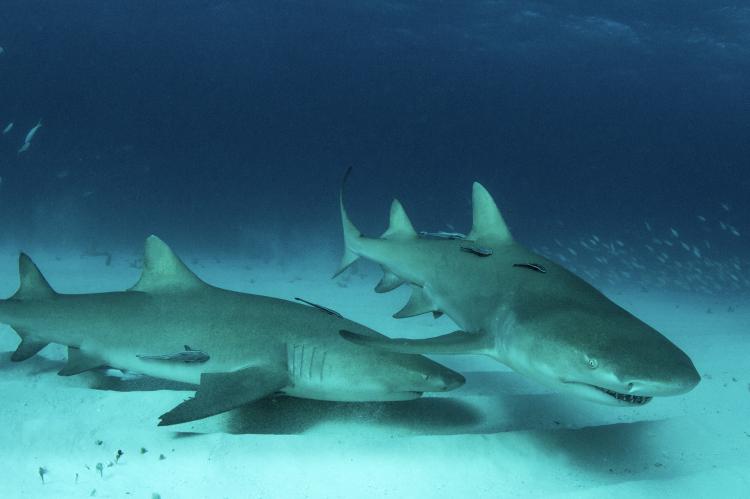Sharks learn from each other
Juvenile lemon sharks found capable of using socially derived information to learn about novel features in their environment a new study finds.
The results are a significant breakthrough, says Dr Tristan Guttridge, director of the Bimini Biological Field Station in the Bahamas and lead author of a new study.
The evidence came from a task-based experiment with juvenile sharks conducted in an underwater pen.
Social learning has already been widely demonstrated among other species and animal groups including corvids, chimps and bats, so Dr Guttridge speculated the same could be true for sharks.
"Sharks do migrate long distances and maybe there's a social context to this as well," he told BBC Nature, comparing his subjects with whales and dolphins that learn their migration routes through culture.
It's a pretty exciting finding that these little lemon sharks are able to pick up social cues from each other
—Dr Tristan Guttridge
The experiment
One corner was designated as "indicator zone" which functioned as the start area.
In the opposite corner there was "target zone" in which there was a black and white marker that could be covered or exposed by the scientists. When the sharks swam into the indicator zone, the target was exposed. By swimming into the target zone and bumping the black and white target they earned a piece of fish.
One group of sharks was then trained in this task until they could complete it roughly six times every minute. Another group was left untrained to serve as a control.
Members of each group was then paired up with other untrained sharks. The team compared the performance the sharks working with both trained and untrained partners. The results showed that sharks working with trained partners could complete tasks more quickly and successfully.


